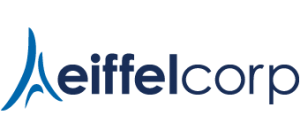
Could academic integrity tools be used to develop well-rounded, contributing members of society, foster academic writing and be a key teaching tool?
Q & A with Myles Thies, Director of Digital Learning Services at Eiffel Corp and Magriet De Villiers, Academic Development Coordinator at Stellenbosch University examine the question of academic integrity at higher education in South Africa.
How do we develop graduate attributes such as:
- Well rounded, personally & socially accountable human beings
- An enquiring mind – critical and creative problem solvers
- Critical Self-Direction & drive
- Engaged citizens
- Dynamic & prepared professionals
MT: At such a time in our history, South Africa needs citizens who can take personal and societal transformation seriously and can read the sign of the times: information vs fake news; ethics vs corruption. Fortunately, a common trait among many young millennials is the commitment to personal causes and that address social injustices and global challenges.
According to UCT academic, Greg Boyle, ensuring academic integrity is so important it mustn’t be left to chance, but should become part of the institution’s technology policies.,In actuality, this implies that the technology and its associated policies must only form the framework around which individuals develop their efforts. If a large majority of learners are bumping up against academic integrity policies or are being stalled by the tools, it implies that programmes to address integrity are ineffectual.
The best technologies in any institution, are those that are integrated and work unseen in the background
At Stellenbosch University, for example, Turnitin (Tii), the worlds foremost academic integrity tool, could be used more widely than a fact-checker. It is usually used summatively, used as the last bar to punish a student – ‘your project just wasn’t good enough’. There is no opportunity for students to learn during the process. Generally, students submit an assignment which has a high credit weighting and there is no place to improve, unless with another assignment.
MdV: Tii could be a formative tool of teachers rather than a punishing tool.
Tii shouldn’t be a once-off for final submission, but used throughout writing and studies and reviewed with a student. The tool could help the student improve with their writing and grammar?
Many institutions, Stellenbosch University being an example, use Tii with postgraduate students as a sandbox/playpen. There is no repository, students upload their thesis, if the lecturer picks up something, they notify the student, which improves the writing process.
According to Ernest Hemmingway: “There is nothing to writing, all you do is sit down at a typewriter & bleed”.
There is dissonance in good academic writing – It’s impossible to have good post-grad writers if under-graduates are not good writers. Tii or other such tools could also foster academic writing skills.
How do we teach and measure without using NOT?
MdV: What if we address writing affirmingly rather than a negatively: Red scratches on a paper mean nothing. Facts might be correct, but the formulation might need attention.
We can give up-building critique without NOT, DON’T and still be constructively critical.
The Theology Department at Stellenbosch University embraces the positive rather than a negative starting point. Instead of so sorry I’m late, rather thank you for waiting for me.
How do you personally use Tii as a teaching and learning tool?
MdV: At SU, I am allocated one tutorial to discuss academic integrity with under-graduates students per semester. Students discuss assignment themes – what students have done in the past (anonymously) and not in such detail as to get content, but to use as an example.
Some lecturers use the tool as a sandbox, where students can submit papers prior to the deadline to identify specific problems such as language and translation.
Does Tii fall under the SU technology policy framework?
MdW: Tii has different outputs depending on the academic integrity philosophy in each department or faculty) eg theology vs arts, science and engineering. Tii recently celebrated its 1 billionth student paper submission.
Plagiarism is viewed differently in the science and engineering faculty vs the law faculty. Different faculties apply plagiarism differently. For example, in the law faculty, a student would need to cite past cases to create a precedent, this would not be plagiarism.
SU is positioned as a research institution and this impacts how academic integrity is reviewed. Other institutions focus on under-graduates or TVET students.
https://us02web.zoom.us/meeting/register/tZMuduCrpzwsH9UM-AhRmaI5RZCWW094eFpy



